Welcome to a two-part series. Part One is the story of a Laotian refugee’s struggle to survive retold by me. Part Two is the original story told by Bounchanh Chanthaphon, himself.
When Bounchanh Chanthaphon, known as “Chan,” to family and friends, was a young boy, he lived in a bamboo hut on stilts in a remote area in Northern Laos. Chan is the eighth child of eleven children, and he was one of three born while living in a P.O.W. camp. Building the hut made of bamboo and wood was a family effort. They all worked together to weave the grass roof to help shield them from the extreme weather and elements in the jungle.
The family did their best with what they had to eat in their sparse surroundings. They ate bamboo shoot soup, caught fish from lakes and rivers with homemade nets and traps, and raised chickens. Sometimes the family would raise rabbits for meat. “Once or twice a year we got to eat beef, water buffalo, goat, or pork,” Chan said. Tropical fruits were plentiful in the jungle, but only during the first few months of summer. Chan’s favorites included wild mangosteen, wild lychee, mango, yellow Burmese grapes, naseberry, and sugar apples.
Even with the abundance of food during certain times of the year, vital nutrients were missing from their diet. When Chan was about ten years old, he became paralyzed for three months due to malnutrition. “My family couldn’t pay for the hospital fees, so my brother-in-law, who was a mechanic in the Air Force, took me under his wing and put me in the Laotian Air Force Hospital. If I didn’t have him, I wonder if I would ever walk again or even still be alive?” wonders Chan.
Chan’s family arrived in Des Moines in 1991 after enduring The Laotian Civil War, followed by years of suffering, confinement, and a temporary separation from their father, Yod. Yod was taken as a prisoner of war by Communists, The Pathet Lao. The final step was a nearly one-year wait in Thailand to leave for the United States.
Chan’s mother and father raised eleven children in deprived, yet humble conditions, but they fought to remain a family. Twenty-two years span between the oldest to the youngest child. Sadly, one daughter died giving birth to her son shortly before the family was to leave for the U.S. Chan recalls the remote area where his sister lived with her husband was a day’s walk from their village.
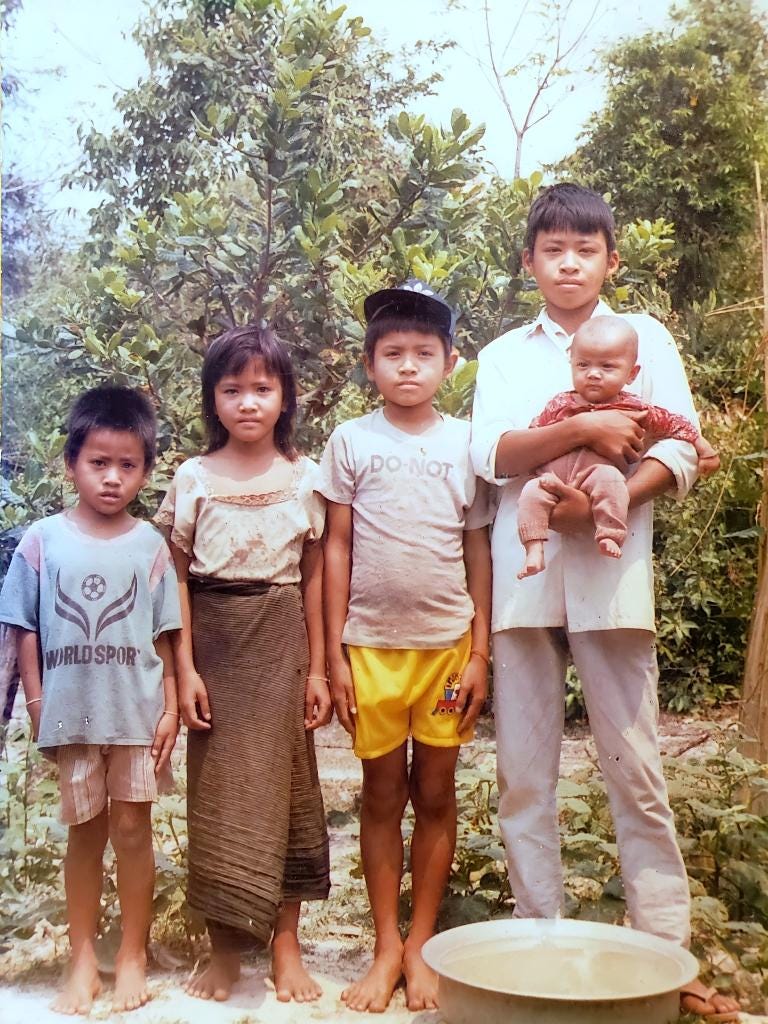
When they arrived in U.S. as refugees, Chan’s family made do with what they had and settled into a house on center of Des Moines near Drake University. The oldest children were adults and began working at Monfort Inc., a beef producer, now ConAgra Foods Inc.
Chan enrolled right away at Harding Middle school in eighth grade. He said his first year was very hard for him because he was shy and felt intimidated by the teachers. He also felt self-conscious and insecure because of the clothes he wore. Chan didn’t feel comfortable in the donated clothes from the church that didn’t quite fit or match.
In high school, Chan took on the responsibility to help his family and to pay for his own needs. His parents were past the age of working so he stocked food, worked as a school custodian, and worked at fast food restaurants throughout high school.
Chan was used to living without many luxuries. “When I was a boy, my mom always asked the barber from our village to cut my hair really short, like a high-and-tight haircut, and I really hated it,” explained Chan. What he really wanted was a tapered haircut with longer hair on top (Chan describes this style as Jack from the movie, Titanic).
In high school, Chan and a good friend, a fellow Laotian, used to take turns cutting each other’s hair, practicing, and learning along the way. Shortly after high school graduation in 1996, Chan went to live with an older sister in Crete, Nebraska to work as a ham producer at Farmland Foods Inc. for one year. After that, Chan decided to use his creative skills to become a hairstylist and enrolled in classes at American College of Hairstyling in Des Moines. Chan has been cutting, coloring, and styling men’s, women’s, and children’s hair in the Des Moines area since 1998. He has been a hairstylist at Emerson Studio in West Des Moines for the past three years. He said he enjoys being a hairstylist because he likes making people look good. “I don’t like people looking too plain, it’s too boring,” said Chan.
Chan and his wife, Uyen, known as Gwen, first met in high school at a part-time job. At the time, they were just friends, but they reconnected at a Vietnamese restaurant in Des Moines in 2006. Gwen arrived from Vietnam with her family when she was sixteen. Chan and Gwen have three children – Jaden, Natalie, and Bently. Their family is a blend of Laotian and Vietnamese backgrounds. “The culture is important, but not so much the language. We train our children to show respect to elderly people and family members. In our culture, we don’t call family members or anyone by name, mostly by title or relationship like “Brother, Sister, Aunt, Uncle, etc.,” explained Chan.
Chan’s arduous past has made him into the strong person he is today. He learned the importance of hard work and family are the keys to happiness.
Stay tuned for Part Two next week:
Our Family's Journey of Survival
From a Wartorn Land to the Promise Land
By Bounchanh Chanthaphon

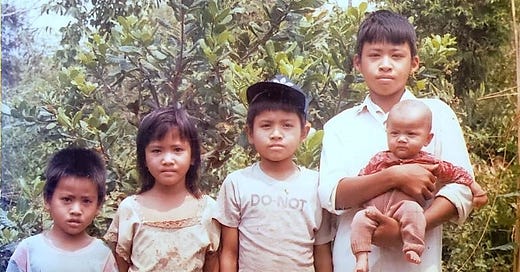



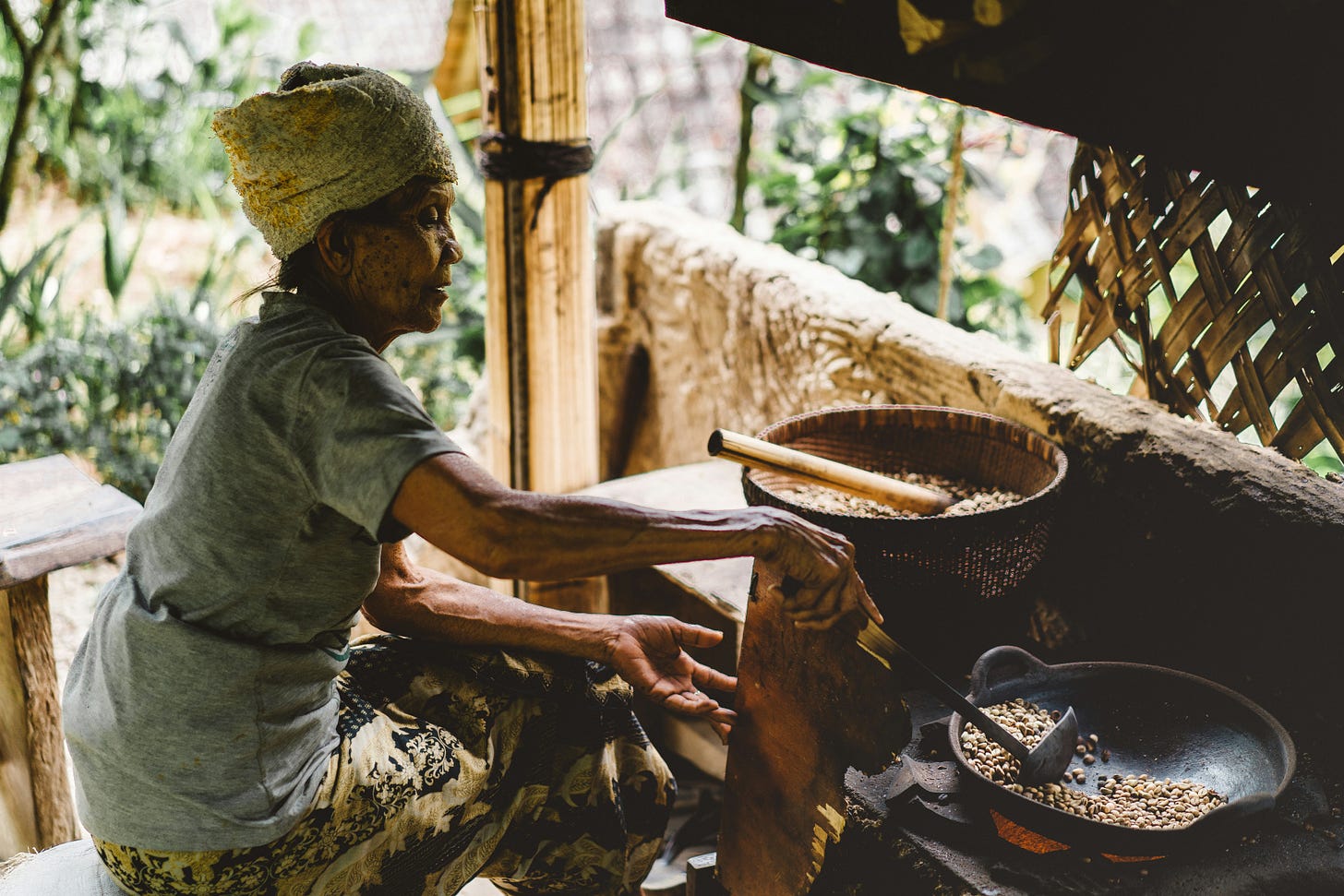


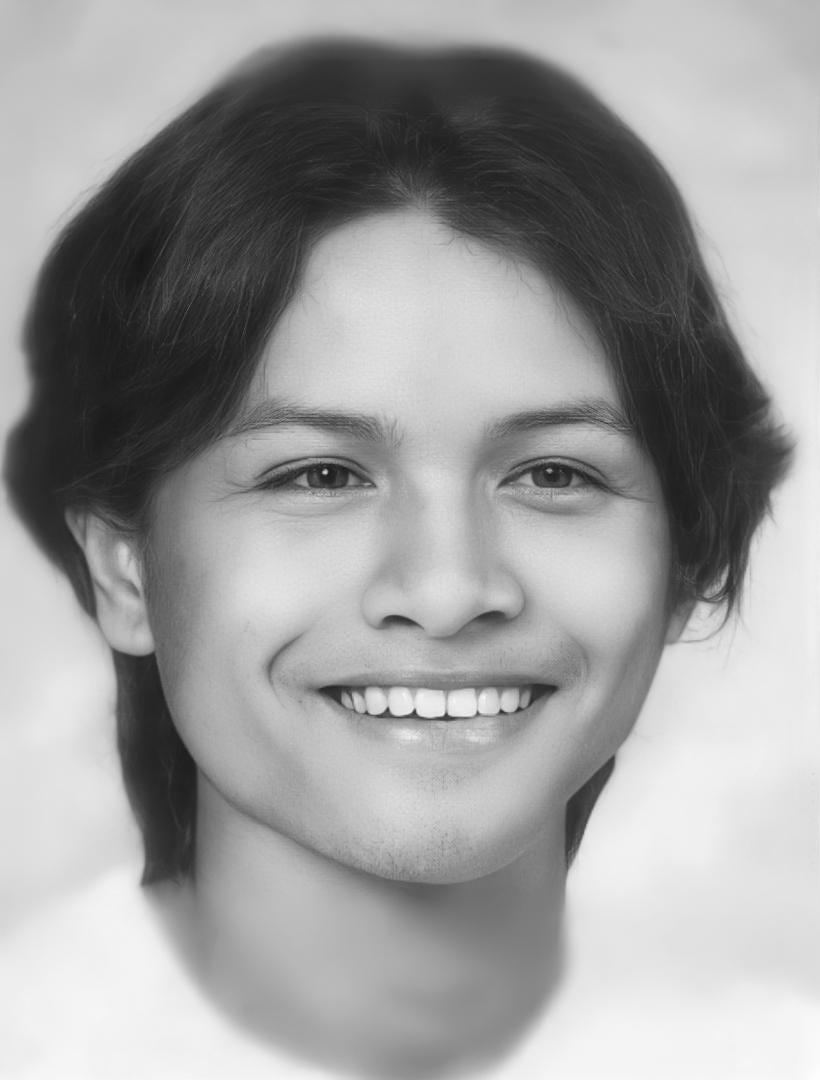


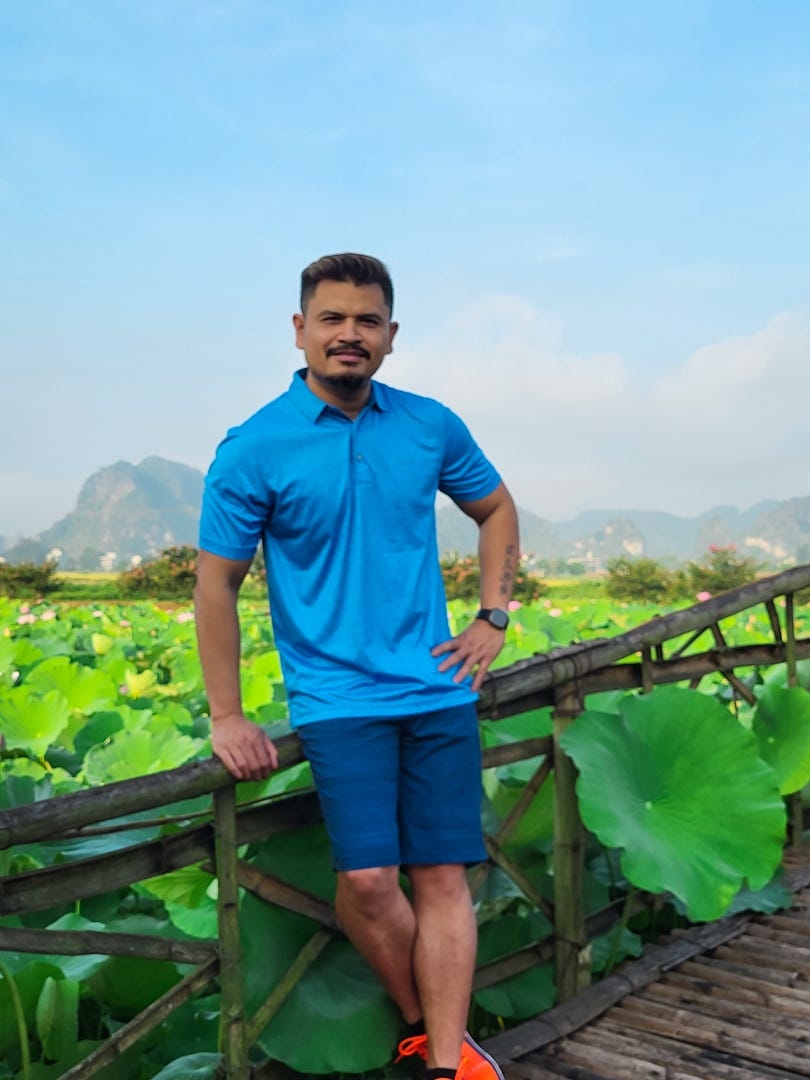
What an admirable, amazing person. Our country needs more people like him. Truly we do.
Wonderful story; photos too!